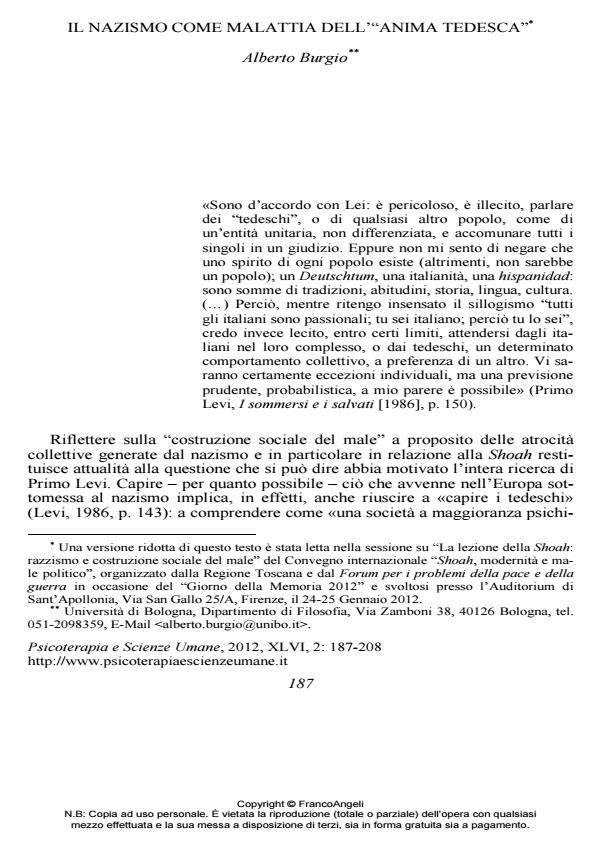Nazism as illness of the "german soul"
Journal title PSICOTERAPIA E SCIENZE UMANE
Author/s Alberto Burgio
Publishing Year 2012 Issue 2012/2 Language Italian
Pages 22 P. 187-208 File size 357 KB
DOI 10.3280/PU2012-002002
DOI is like a bar code for intellectual property: to have more infomation
click here
Below, you can see the article first page
If you want to buy this article in PDF format, you can do it, following the instructions to buy download credits

FrancoAngeli is member of Publishers International Linking Association, Inc (PILA), a not-for-profit association which run the CrossRef service enabling links to and from online scholarly content.
In order to understand what happened in Germany and Europe during Nazi domination (particularly the planned extermination of patients, Jews, "Gypsies", and Slavs), it is indispensable - as Primo Levi said - "to understand Germans", since Nazi regime constantly relied on active participation of the majority of population. As Thomas Mann pointed out, a key factor of the plebiscitary consensus obtained by the regime was - together with a strong quest for order and security, and the willingness to trust the decisions of a charismatic leader - the widespread need to belong to an homogeneous, cohesive and closed community; this, in turn, generated a psychological and moral climate which favored the dehumanization of the "foreign" and of internal and external enemies. In order to appropriately reconstruct historical events, it is necessary to consider these aspects of what Thomas Mann called the "German soul", that were likely powered by an authoritarian educational model derived from military ideology.
Keywords: Nazism, violence, community, dehumanization, motivations
Alberto Burgio, Il nazismo come malattia dell'"anima tedesca" in "PSICOTERAPIA E SCIENZE UMANE" 2/2012, pp 187-208, DOI: 10.3280/PU2012-002002